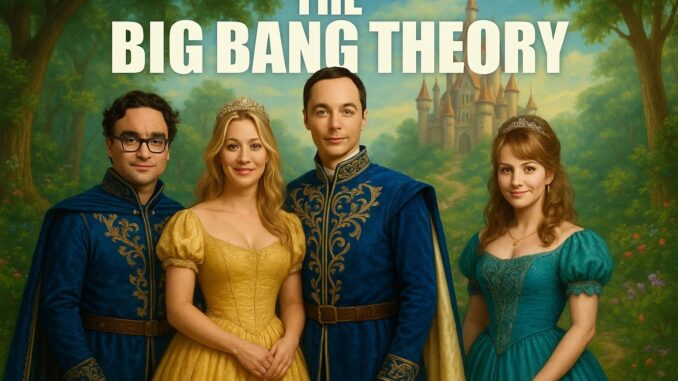
Some sitcoms are remembered for their characters, others for their catchphrases. The Big Bang Theory managed to dominate both—and then went one step further by reshaping how television shows interact with pop culture merchandising.
Take Sheldon’s catchphrase “Bazinga!” Originally written as a small gag, it became an international sensation. Within months, merchandise flooded the market: T-shirts, mugs, hats, posters. The word entered everyday conversation, becoming shorthand for a playful “gotcha.” Unlike most catchphrases, “Bazinga!” didn’t fade when the series ended—it remains one of the most recognizable sitcom lines of the 21st century.
Fashion also played a major role. Sheldon’s collection of superhero T-shirts became iconic. The Flash logo, in particular, became synonymous with his character. Fans began wearing similar shirts not just as a nod to Sheldon but as a proud declaration of their geek identity. Before TBBT, wearing comic book apparel outside of conventions was sometimes seen as niche. After the show, it became mainstream. Retailers reported surges in sales of superhero-themed clothing, directly crediting the show for the trend.
And then there was Rock-Paper-Scissors-Lizard-Spock. What started as a throwaway joke in Season 2 exploded into a cultural phenomenon. Fans around the world adopted the expanded hand game, sharing tutorials online and even using it in classrooms to teach probability and logic. The joke had crossed into reality, proving the show’s ability to influence behavior beyond the screen.
But perhaps the most overlooked impact was how The Big Bang Theory normalized “nerd culture.” Collectibles, comic books, and even physics jokes became desirable merchandise. The show blurred the line between fictional humor and real-world identity. Fans didn’t just watch TBBT—they lived it, wearing the shirts, quoting the lines, and playing the games.
This merging of fiction and reality speaks to the show’s cultural power. Like Friends made coffee shops trendy and Sex and the City popularized high fashion, The Big Bang Theory turned geek culture into a global brand. Its influence wasn’t limited to television—it transformed closets, classrooms, and conversations.
